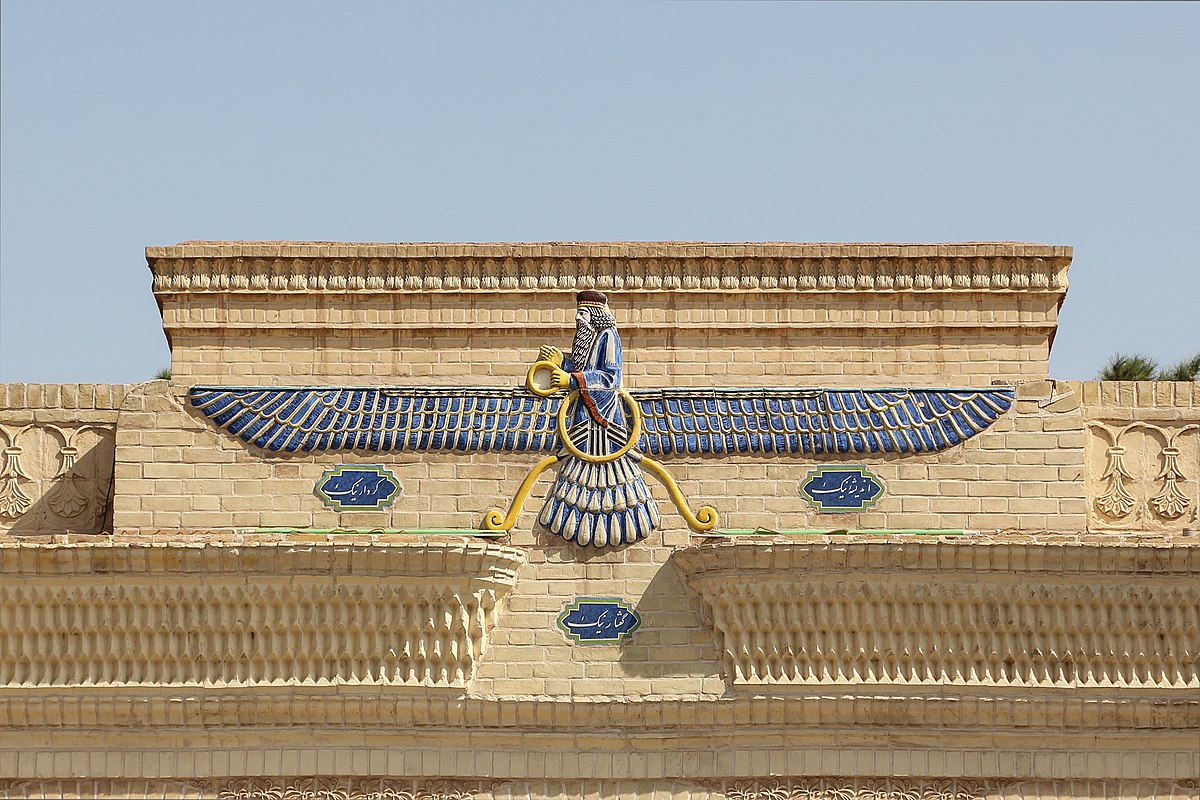What Religion is Zoroastrianism? Kown as Zarathustraism, is considered to be one of the oldest religions in the world. It is a monotheistic faith that originated in ancient Persia (modern-day Iran) around 3,500 years ago. Despite being a relatively small religion with only around 200,000 followers worldwide, it has had a significant influence on the development of other major faiths, such as Judaism, Christianity, and Islam.
In this comprehensive guide, we will delve into the origins, beliefs, practices, and current status of Zoroastrianism. We will also explore the impact of this ancient religion on the world today and discuss its relevance in the modern age.
Origins of Zoroastrianism
Zoroastrianism was founded by the prophet Zoroaster (also known as Zarathustra) in ancient Persia sometime between 1,500 and 1,000 BCE. Little is known about his life, but it is believed that he received divine revelations from Ahura Mazda, the supreme god in Zoroastrianism. Zoroaster’s teachings emphasized the dualistic nature of the universe, with a struggle between good (represented by Ahura Mazda) and evil (represented by Angra Mainyu or Ahriman).
The holy scripture of Zoroastrianism is the Avesta, which contains the teachings of Zoroaster and hymns dedicated to the various deities in the Zoroastrian pantheon. The most important text in the Avesta is the Gathas, a collection of hymns that are believed to have been composed by Zoroaster himself.
Beliefs and Practices
Zoroastrianism is based on three core tenets: good thoughts, good words, and good deeds. Followers of the faith are encouraged to live a life of righteousness, compassion, and moral integrity in order to combat the forces of evil in the world.
Central to Zoroastrian belief is the concept of dualism, which posits that the universe is divided between the forces of light and darkness. Ahura Mazda, the supreme god, is associated with truth, order, and goodness, while Angra Mainyu, the evil spirit, is associated with lies, chaos, and destruction.
Zoroastrians believe in the existence of a divine hierarchy of deities, with Ahura Mazda at the top, followed by a number of lesser gods and goddesses. The most important of these is the Amesha Spentas, or “Holy Immortals,” who embody divine attributes such as truth, justice, and wisdom.
Zoroastrians worship in fire temples, where they offer prayers, sing hymns, and make offerings of sandalwood, incense, and flowers to the sacred fire, which symbolizes the presence of Ahura Mazda. Fire is considered to be a purifying agent in Zoroastrianism, and the faithful are encouraged to maintain a sacred fire in their homes as a source of spiritual strength and protection.
Zoroastrians also practice rituals such as the Yasna, a liturgical ceremony in which prayers are recited and offerings are made to the deities. Another important rite is the Navjote, or initiation ceremony, in which young Zoroastrians are inducted into the faith and receive a sacred cord as a symbol of their commitment to the religion.
Current Status of Zoroastrianism
Zoroastrianism has experienced a decline in recent centuries, largely due to persecution, forced conversions, and emigration. The religion was once widespread in the ancient world, with adherents in Persia, Central Asia, and even as far as India and China. However, the rise of Islam in the seventh century and the subsequent Arab conquest of Persia led to the suppression of Zoroastrianism and the conversion of many of its followers to the new faith.
Today, Zoroastrianism is primarily practiced in Iran and India, where the majority of Zoroastrians are concentrated. There are also small communities of Zoroastrians in North America, Europe, and Australia, where they have established religious centers, cultural associations, and educational institutions to preserve and promote their faith.
In recent years, there has been a renewed interest in Zoroastrianism among scholars, religious leaders, and spiritual seekers. The teachings of Zoroaster, with their emphasis on ethical living, social justice, and environmental stewardship, have a timeless appeal and resonate with people of all faiths and backgrounds.
Impact of Zoroastrianism on World Religions
Despite its relatively small size, Zoroastrianism has had a profound influence on the development of other major world religions. Scholars believe that many of the central tenets of Zoroastrianism, such as the belief in a single, all-powerful god, the concept of heaven and hell, and the idea of a final judgment, were later incorporated into Judaism, Christianity, and Islam.
For example, the Hebrew Bible contains references to Zoroastrian concepts such as the struggle between good and evil, the resurrection of the dead, and the coming of a messianic figure who will bring about a new age of peace and justice. Similarly, the teachings of Jesus Christ in the New Testament, such as the golden rule and the beatitudes, bear a striking resemblance to the ethical teachings of Zoroaster.
In Islam, the Quran makes frequent mention of angels, demons, and the day of judgment, all of which are ideas borrowed from Zoroastrianism. The Islamic notion of paradise, with its rivers of milk and honey, is also reminiscent of the Zoroastrian concept of a heavenly abode filled with delights and pleasures.
Conclusion
In conclusion, Zoroastrianism is a rich and vibrant religion with a long and storied history. Despite its decline in numbers, its teachings continue to inspire and enlighten people around the world. By understanding the beliefs, practices, and influence of Zoroastrianism, we can gain a deeper appreciation of the diversity and complexity of the human religious experience.
Related Queries about Zoroastrianism
What is the significance of fire in Zoroastrianism?
Fire is considered a symbol of purity and the presence of Ahura Mazda. It is central to many Zoroastrian rituals, and fire temples are places of worship where sacred fires are kept burning.
Who was Zoroaster, and what did he teach?
Zoroaster, or Zarathustra, was the founder of Zoroastrianism. He taught that the universe was created by Ahura Mazda, the supreme god, and that humans must choose between good and evil, with the ultimate goal being the promotion of truth, goodness, and light.
What is the Zoroastrian concept of the afterlife?
Zoroastrians believe that after death, souls are judged by their deeds. If the individual led a good life, they are allowed to cross the Chinvat Bridge to heaven. If they lived an evil life, they fall into a dark abyss, symbolizing hell.
What is the role of Ahura Mazda in Zoroastrianism?
Ahura Mazda is the one supreme god in Zoroastrianism, responsible for the creation of the world and the source of all good. Zoroastrians worship Ahura Mazda through prayers and rituals, seeking to promote truth and goodness in their lives.
Why do Zoroastrians traditionally avoid cremation and burial?
Zoroastrians traditionally avoid cremation and burial because they believe the body is a sacred vessel. Instead, they practice exposure of the dead to the elements in special towers of silence, where vultures consume the body, keeping the earth, water, and fire pure.
Frequently Asked Questions (FAQs) about Zoroastrianism
What is Zoroastrianism?
Zoroastrianism is one of the oldest known monotheistic religions, founded by the prophet Zoroaster (or Zarathustra) in ancient Persia. It emphasizes the worship of Ahura Mazda, the supreme god, and the moral struggle between good (represented by Ahura Mazda) and evil (represented by Angra Mainyu).
What are the core beliefs of Zoroastrianism?
Zoroastrianism revolves around the concepts of good thoughts, good words, and good deeds. It believes in the existence of a cosmic struggle between good and evil, the importance of individual responsibility, and the eventual triumph of good. Zoroastrians believe in an afterlife, where souls are judged based on their deeds.
How many Zoroastrians are there in the world today?
There are an estimated 100,000 to 200,000 Zoroastrians worldwide, with communities mainly in India (where they are known as Parsis) and Iran. The religion, however, has significantly diminished in number over the centuries due to historical events, such as the Arab conquest of Persia.
What is the Zoroastrian holy book?
The Zoroastrian holy book is called the Avesta, a collection of hymns, prayers, and religious texts. The Avesta includes the Gathas, the hymns attributed to Zoroaster himself, and other writings that guide followers on ethics, rituals, and theology.
What are the main rituals in Zoroastrianism?
The main rituals in Zoroastrianism include prayers, offerings to Ahura Mazda, and fire worship, as fire is considered a symbol of purity. Rituals such as Navjote (initiation), weddings, and funeral rites are also significant. Zoroastrians are encouraged to pray several times a day and maintain purity through practices like washing hands and face before prayer.
If you are interested in learning more about religion, please visit whatreligionisinfo.com.



